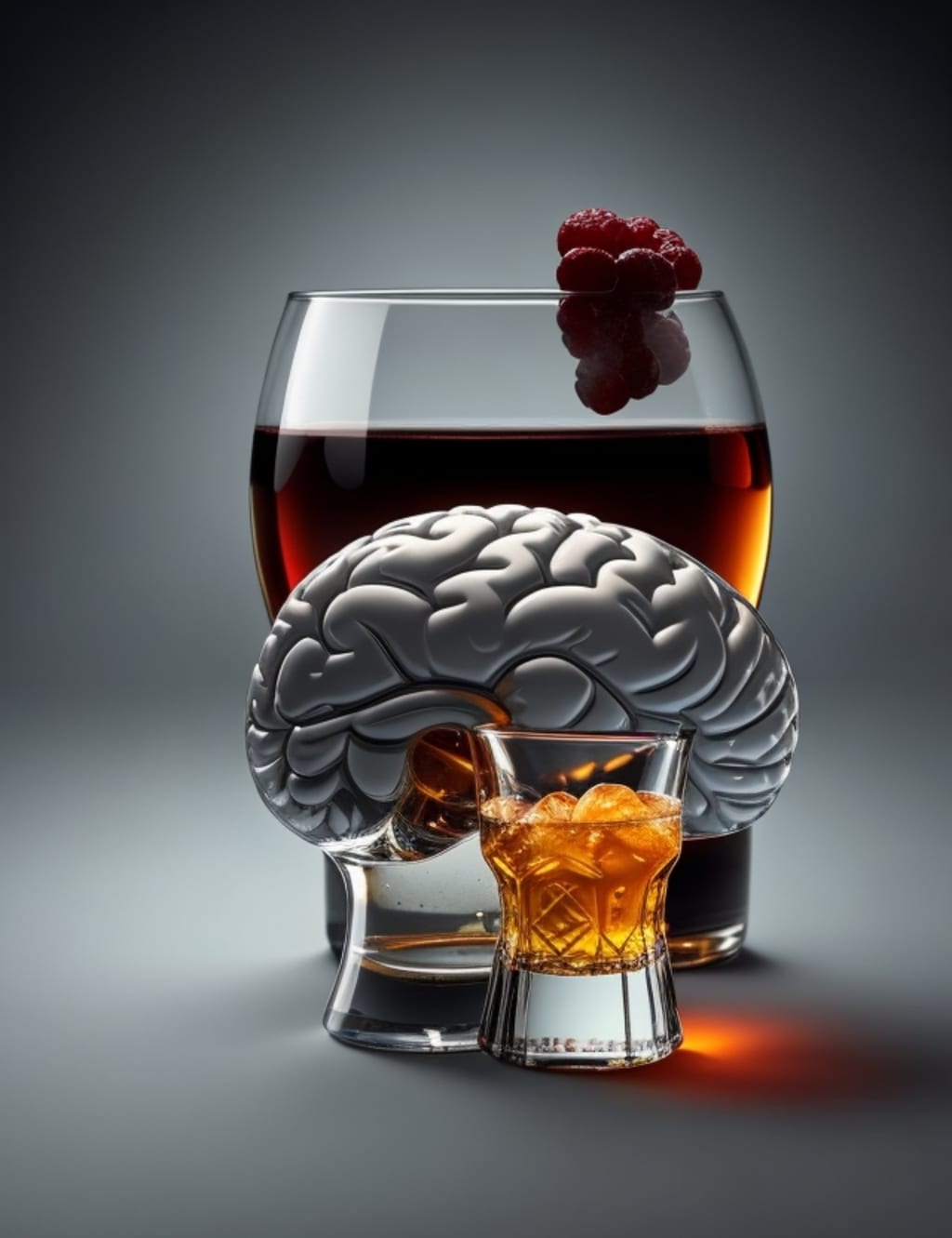The wine and the brain
Alcohol addiction

Alcohol addiction is a chronic disease that affects millions of people worldwide. It is characterized by a physical and psychological dependence on alcohol that can lead to a range of negative consequences, including health problems, social isolation, and financial difficulties. One of the key factors that contribute to alcohol addiction is the way that alcohol affects the brain.
When a person drinks alcohol, it enters the bloodstream and travels to the brain, where it begins to affect the communication
avatar
between neurons. Specifically, alcohol acts as a depressant, slowing down the activity of the central nervous system. This results in a range of effects, including relaxation, reduced inhibitions, and impaired judgment.
Over time, however, the repeated use of alcohol can lead to changes in the brain that contribute to addiction. One of the key changes that occurs is the development of tolerance. This means that a person needs to drink more and more alcohol in order to achieve the same effects that
avatar
they once experienced with lower amounts. This occurs because the brain adapts to the presence of alcohol, and the neurons become less responsive to its effects.
Another key change that occurs in the brain of someone with alcohol addiction is the development of dependence. This means that the person experiences withdrawal symptoms when they stop drinking, such as tremors, anxiety, and seizures. These symptoms occur because the brain has become so accustomed to the presence of alcohol that it has
avatar
adapted its functioning to accommodate it. When alcohol is suddenly removed, the brain struggles to maintain normal functioning, leading to the symptoms of withdrawal.
The development of addiction also involves changes in the reward system of the brain. The reward system is a network of neurons that are responsible for producing feelings of pleasure and motivation. When a person engages in activities that are pleasurable, such as eating or having sex, the reward system is activated, releasing dopamine,
avatar
a neurotransmitter that produces feelings of pleasure and reward.
Alcohol also activates the reward system, leading to the release of dopamine. However, repeated use of alcohol can lead to changes in the reward system, making it less responsive to the effects of alcohol. This means that a person with alcohol addiction may need to drink more and more alcohol in order to experience the same feelings of pleasure and reward.
The changes that occur in the brain of someone with alcohol addiction can
avatar
also lead to a range of negative consequences. For example, the reduced inhibitions and impaired judgment that result from drinking can lead to risky behaviors, such as driving while under the influence or engaging in unprotected sex. The physical effects of alcohol can also lead to health problems, such as liver damage, heart disease, and cancer.
Treatment for alcohol addiction typically involves a combination of medication and therapy. Medications can help to reduce the symptoms of withdrawal
avatar
and cravings, while therapy can help to address the underlying psychological factors that contribute to addiction. For example, cognitive-behavioral therapy can help to identify and change negative thought patterns and behaviors that contribute to addiction.
In conclusion, alcohol addiction is a complex disease that involves changes in the brain that contribute to physical and psychological dependence on alcohol. The development of tolerance, dependence, and changes in the reward system of the brain
avatar
can all contribute to addiction. Treatment for alcohol addiction typically involves a combination of medication and therapy, and can help individuals to overcome the negative consequences of alcohol addiction and achieve long-term recovery.






Comments
There are no comments for this story
Be the first to respond and start the conversation.